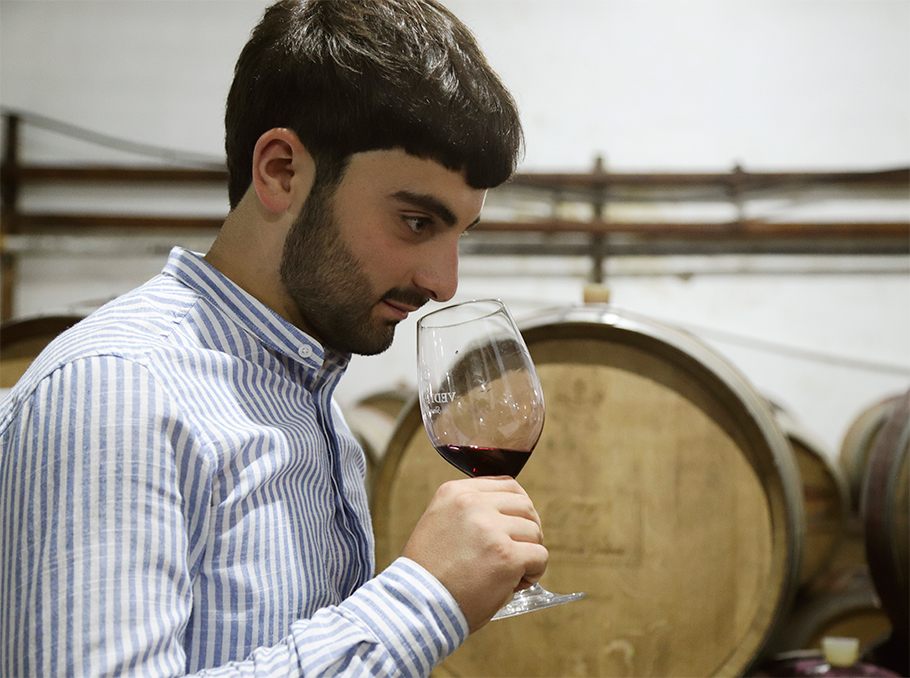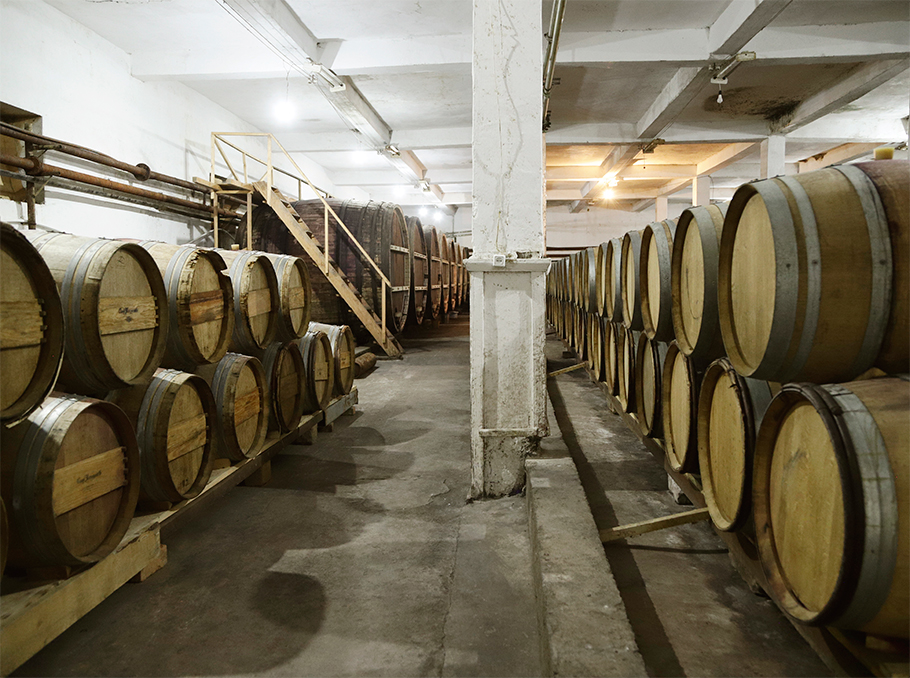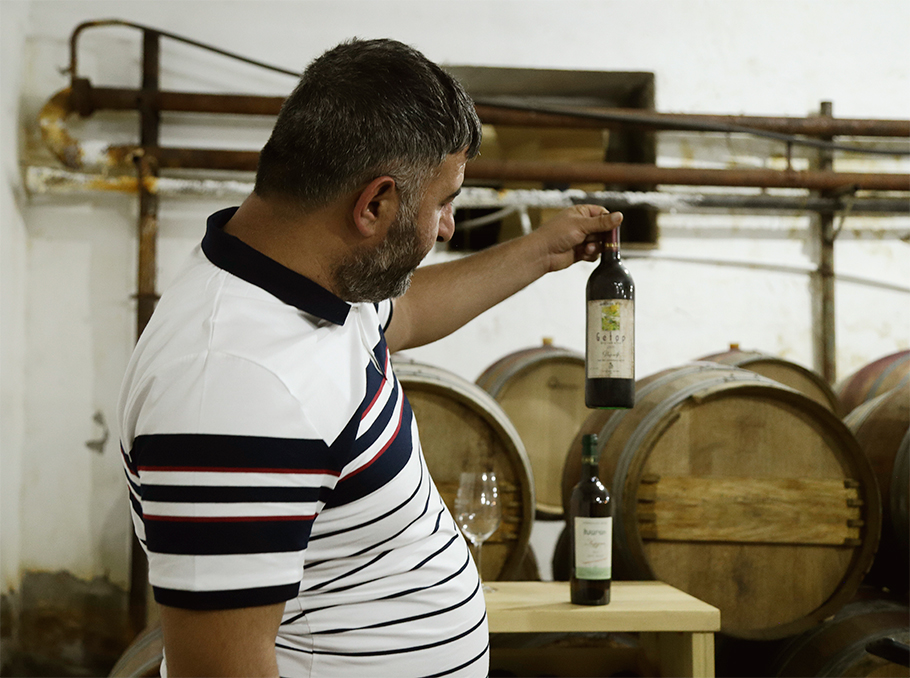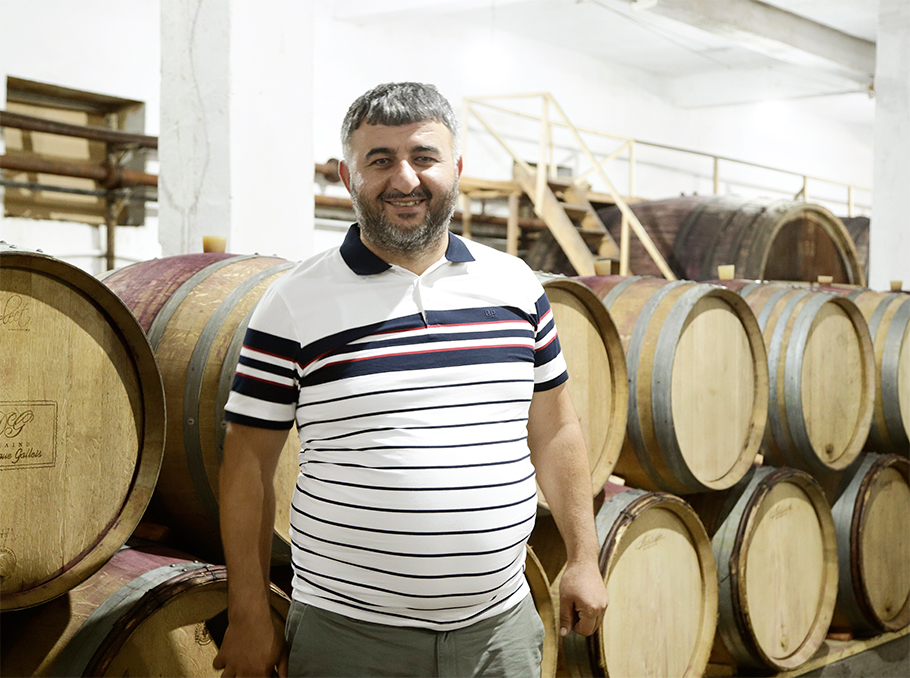“Reading rules in books will not make you a good winemaker. The real specialist of this field must feel the aroma of wine, participate in all stages of its creation, from grape cultivation to the first tasting,” says Manvel Ghazaryan, 17, who is studying winemaking at Vayots Dzor Regional State College.
Manvel is from Azatek community of the same region. Despite the small number of winemakers in his native village, he got interested in the process of winemaking:
“I really like and appreciate high quality wine. Over time, I realized that I wanted to create wine myself. After finishing the 9th grade, I entered the college’s Department of Winemaking and Juice Production. I’m studying here for already the second year.”
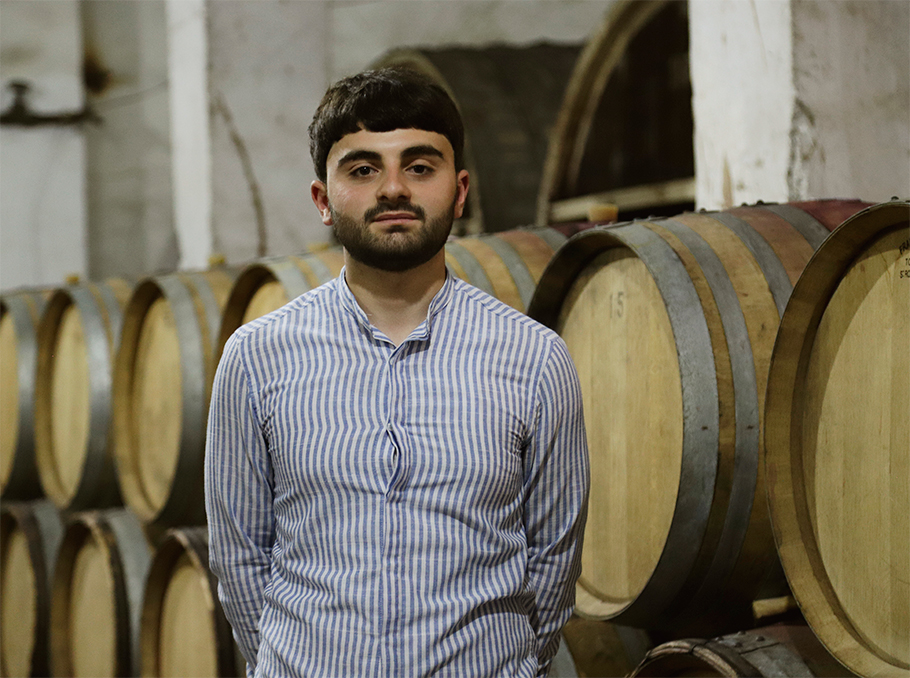 Manvel Ghazaryan
Manvel Ghazaryan Photo: Mediamax
The dual education system has been introduced in Vayots Dzor Regional State College since 2018. The student here receives education in two environments at once: in an educational institution and in a private company, gaining work experience. To date, 3 generations, about 40 graduates, have been educated in the Vayots Dzor Regional State College majoring in winemaking. Manvel and his fellow students were twice involved in the work of wineries in the region during the two years of study.
“After getting theoretical knowledge in the first year, we went to the winery for internship. I spent more than two months at the Getap Winery, where I participated in all stages of winemaking, even in procurement. This is the most important stage, because damaged grapes or those tasting bad should not be part of the wine under any circumstances. Later, within the framework of dual education system I also worked in another winery in the region,” says Manvel Ghazaryan.
Apart from cooperation with the private sector, the dual education system also envisages operation of appropriate laboratories or workshops at the educational institutions enabling students to apply theoretical knowledge in practice.
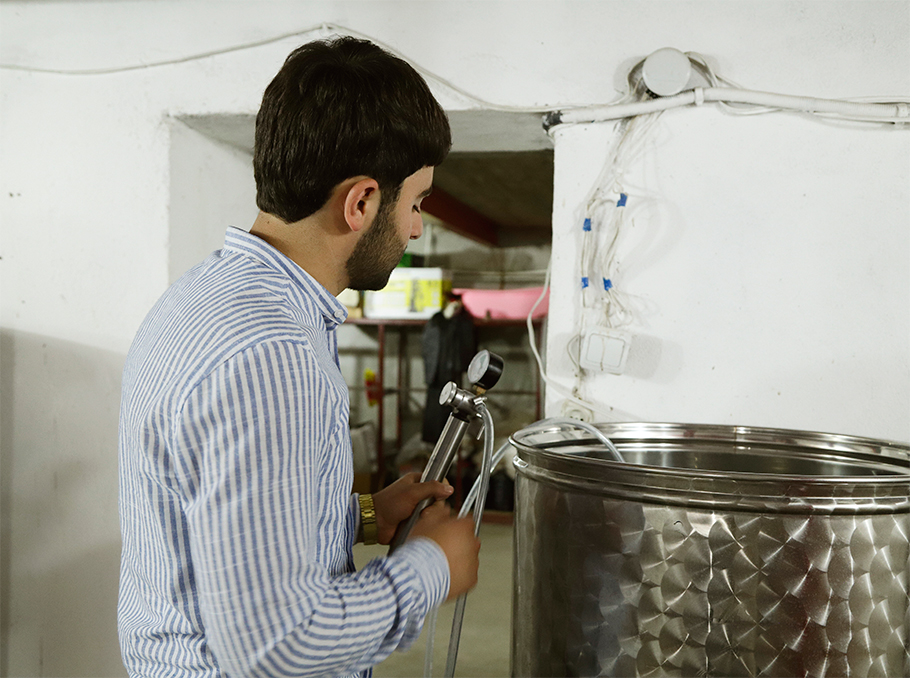 Manvel Ghazaryan at college laboratory
Manvel Ghazaryan at college laboratory Photo: Mediamax
Manvel says that they have already managed to create quite high quality wine in their college laboratory:
“Here we have all the necessary conditions for the wine to go through all stages of preparation: fermentation, aging, etc. Both during the fermentation and aging, we regularly test the contents of the containers and barrels to get the wine we want. It was the same in the wineries. We can say it’s the perfect start of the working day - to taste the wine you helped create,” says Manvel, smiling.
He is sure he will not leave his profession in the future, moreover, he is thinking of studying winemaking at the university after completing military service.
“With the work experience I already have, I will be able to work in different wineries, become skilled winemaker and later, perhaps, establish my own small production.”
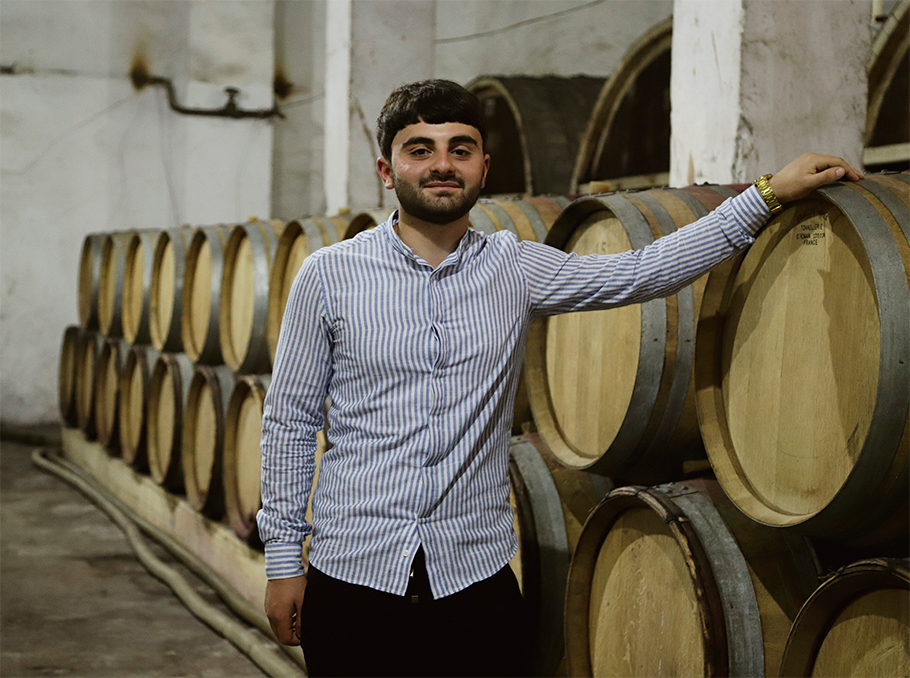 Manvel Ghazaryan
Manvel Ghazaryan Photo: Mediamax
Master-lecturer of Vayots Dzor Regional State College, chief winemaker of Getap winery Anushavan Movsisyan says that both their winery and the industry in general need rejuvenation.
“The dual education system is very useful, in this sense. We get the opportunity to transfer not only theoretical but also practical knowledge to young people studying winemaking, follow their work on the spot, familiarize them with all the stages of wine production and engage them in the process. Students, who come to the winery for internship under the dual system, stay here as main employees,” says Anushavan Movsisyan.
He noted that the Getap winery is the oldest in the region, it was built in 1938, and in 1940-41, the first wine, the popular Areni, was produced here.
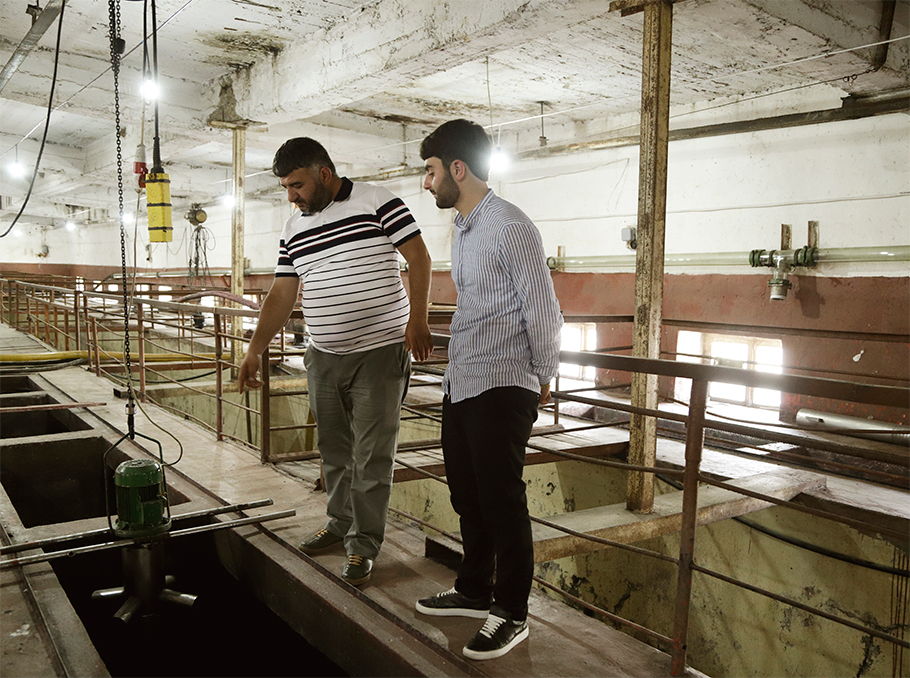 Anushavan Movsisyan and Manvel Ghazaryan Getap winery
Anushavan Movsisyan and Manvel Ghazaryan Getap wineryPhoto: Mediamax
“Winemaking in our region has a history of thousands of years, but factory production of wine began at Getap winery. In the 1950s, semi-sweet Vernashen, no less famous than Areni, was produced here. Now many produce semi-sweet Vernashen, but our factory’s is called Getap Vernashen. Along with the new equipment in the winery we also have old one remained from the Soviet years, which we keep as a museum specimen and show to the students,” says Anushavan Movsisyan.
He said that they can talk endlessly with students about the process of clearing wine from sediment, but one thing is to hear about it, another thing is to participate in it personally.
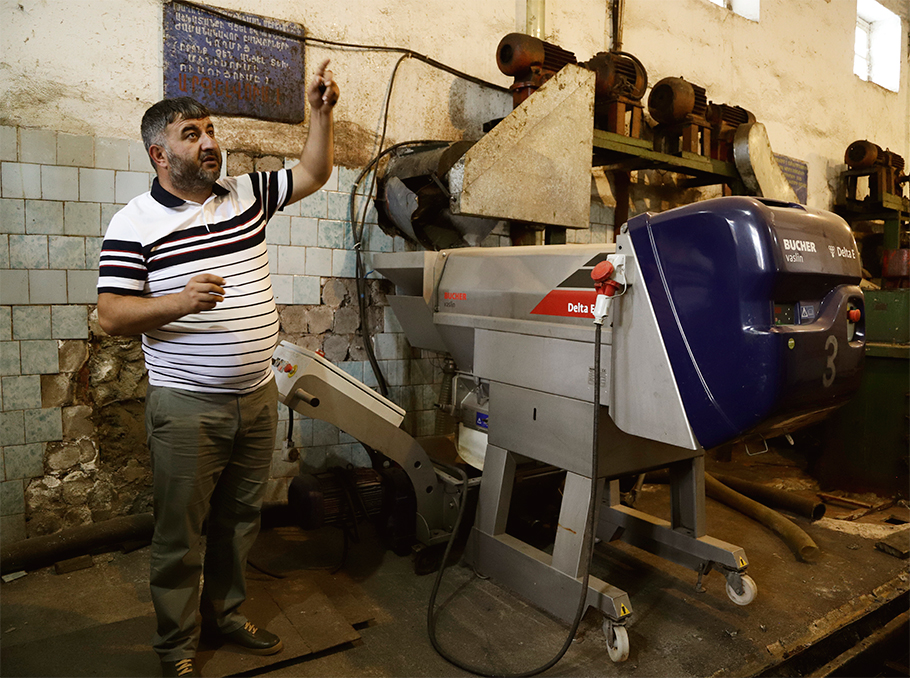 Anushavan Movsisyan
Anushavan MovsisyanPhoto: Mediamax
“A student can memorize this or that rule from the book, but real professional knowledge can be obtained only by combining theoretical and practical approaches. Our winery received hundreds of students in these years, mostly boys. But I must say that girls are also good at winemaking. Moreover, there were also romantic stories when the boys created wine and named it after one of the girls of the group, confessing their feelings.”
Anushavan Movsisyan says that due to the need of additional employees during procurement, in recent years they have been trying to involve students in this phase.
“It is very important that the dual system, in addition to real knowledge, also gives the student work experience. This helps a lot in their professional development process.”
The piloting of the dual education system in Armenia began with the cooperation of “Private Sector Development and Technical Vocational Education and Training in the South Caucasus” (PSD TVET) programme implemented by Deutsche Gesellschaft für Internationale Zusammenarbeit (GIZ) and the Ministry of Education, Science, Culture and Sports of the Republic of Armenia.
Speaking with Mediamax, Madeleine Rauschenberger, GIZ Armenia Country Director, stressed that their key goal is to facilitate a dialogue between the private sector and state structures for the educational institutions to train specialists that the market really needs.
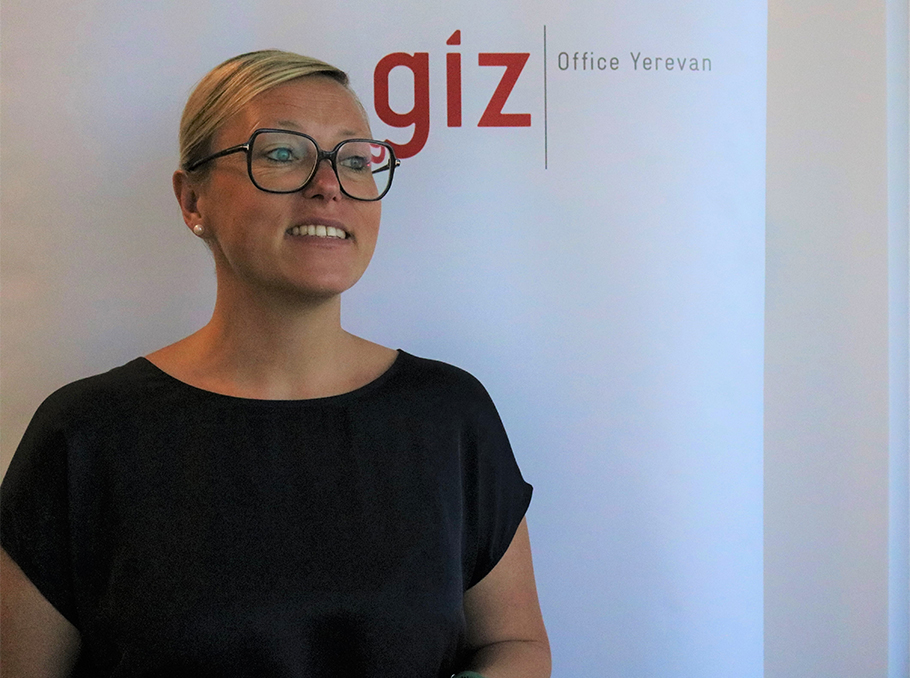 Madeleine Raushenberger
Madeleine RaushenbergerPhoto: GIZ
“Commissioned by the German Federal Ministry for Economic Cooperation and Development (BMZ), the Deutsche Gesellschaft für international Zusammenarbeit (GIZ) has been supporting the introduction of dual education in Armenia since 2017 through the Private Sector Development and Technical Vocational Education and Training in the South Caucasus (PSD TVET) Programme. We adopt German Development Cooperation’s integrated approach in employment promotion, addressing both the supply and demand side of the labour market. As GIZ, we facilitate dialogue between the private sector and state institutions, support VET legislation towards a more demand-oriented education and training, ensuring quality standards in VET and building the appropriate institutional context. Together with our partners, our goal is to expand the geographical outreach of dual education in Armenia, both to include new colleges and scale up the geography of private companies, so that more companies engage in the dual education system. We work closely with our state, public and private partners to anchor the dual education in the Armenian VET system and thus contribute to sustainable economic development and employment promotion, for shaping a prospering Armenia countrywide worth living in.”
The introduction of the dual education model in the Republic of Armenia is supported by the “Private Sector Development and Technical Vocational Education and Training in the South Caucasus” (PSD TVET) and MAVETA programmes.
*“Private Sector Development and Technical Vocational Education and Training in the South Caucasus” (PSD TVET) programme is implemented by the Deutsche Gesellschaft für Internationale Zusammenarbeit (GIZ) GmbH on behalf of the Federal Ministry for Economic Cooperation and Development (BMZ).
* MAVETA program started on December 3, 2021, with a preparatory phase that has been successfully summarized in August 2022. The 1st main phase of implementation started afterwards, which will last until August 2025 with total budget of CHF 8.3 million.
MAVETA program works to anchor this dual education approach at the political and institutional level. Within the framework of the programme, dual education has been introduced at Goris State Agricultural College, Sisian College of ANAU (Syunik), Stepanavan State Agricultural College (Lori), Berd State Multifunctional College (Tavush), Echmiadzin Craftsman State School (Armavir) and Yerevan College of ANAU.
The MAVETA project is funded by a broad coalition of international and local organizations led by the Swiss Agency for Development and Cooperation (SDC), including the Austrian Development Agency, the German Ministry for Economic Cooperation and Development (BMZ), the Government of Armenia, the Swiss Church Aid (HEKS/EPER) NGO, Izmirlian Foundation, the Strategic Development Agency (SDA) NGO and Vanand Agro CJSC.
The project’s implementing partners are the GIZ and HEKS/EPER with the involvement of SDA and the School of Agricultural, Forest and Food Sciences at the Bern University of Applied Sciences (HAFL).
Yana Shakhramanyan
Photos by Agape Grigoryan









